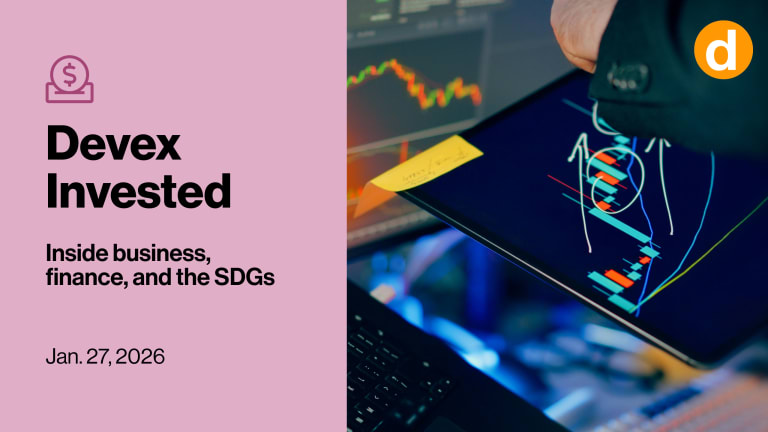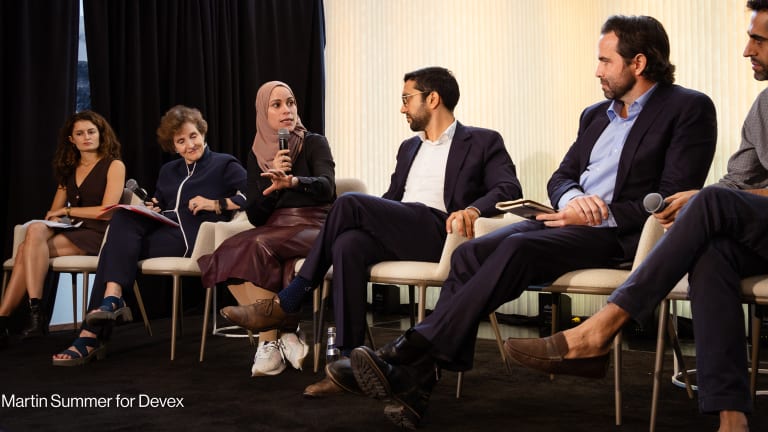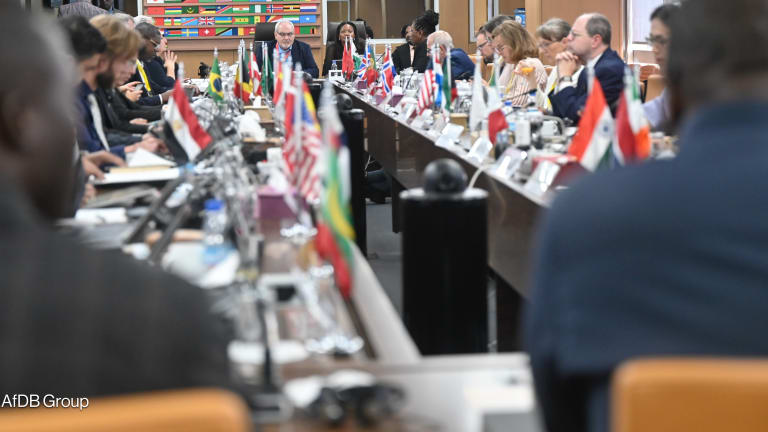
THE HAGUE — The U.S. Agency for International Development and the Overseas Private Investment Corporation announced contributions to a fund for women’s economic empowerment Tuesday, describing the collaboration as a sign of things to come when the new U.S. development finance institution launches in October.
USAID will give $500,000 in funding and $100,000 in technical assistance to a Women's World Banking Asset Management, or WAM, blended finance fund, which aims to raise $100 million to support financial inclusion for low-income women in Africa, the Middle East, and the Indo-Pacific. OPIC announced its intent to provide $25 million in financing.
“One thing that we've learned is that when a woman earns a dollar, she puts 90 cents back into her family. A man only puts 30 cents back into his family,” OPIC Acting President and CEO David Bohigian said at the Global Entrepreneurship Summit 2019 in The Hague Tuesday.
“So, this truly is, with Women's World Banking, providing the credit and the capital that women need — we think, a really catalytic investment. And also, it shows the strong partnership that we have with USAID.”
Speaking at a press conference in The Hague, USAID Deputy Administrator Bonnie Glick said the commitment was a first of its kind for two reasons. “It's something that is a preview to how USAID will be working with OPIC when the two combine forces on October 1 to launch the U.S. International Development Finance Corporation,” she said.
“It's also the first time that USAID has focused on this blended finance in such a public forum. We've done little bits and pieces here and there that has been much more ad hoc. But, the idea behind getting behind blended finance as a way to allow more women in particular to enter the business space has been, we find, a critical step toward getting more and more women to launch their own businesses,” she added.
Glick said blended finance — which uses public money to make development investments more appealing to the private sector — can help shift the balance in risk and reward for investors while closing financing gaps for donors.
“USAID is rethinking how international development initiatives are designed, tested, and rolled out, and we're embracing the creativity and entrepreneurship that only the private sector can bring to the table,” she said. “While there will always be an important role for traditional contracting and grant-making in USAID's work, we can accelerate and amplify our efforts and outcomes by increasingly applying market-based solutions to the development challenges we aim to address.”
She also defended the modest amount of support, saying “$100,000 in technical assistance is a start … You know that normally our projects and programs have an additional zero or two at the end of them,” but that the collaboration with WAM aimed to provide “the initial seed capital that allows other investors to come to the table with more zeros at the end of their engagements.”
The technical assistance of $100,000 would go toward enabling “better assessments of financial institution's digital strategies,” Glick said. A USAID official, authorized to speak to the media on condition of anonymity, told Devex the money was designed to add to the checks WAM performs when it assesses companies’ management and operational performance and financial forecasts.
“What we wanted to do is just provide an additional layer onto that due diligence which would allow [WAM] the capacity to also extend their team, possibly through hiring specific consultants with a knowledge area on digital and financial services, to then amplify their due diligence when it comes to evaluating investment opportunities,” the official said.
The official added that digital solutions were key to boosting women’s economic inclusion, helping to overcome cultural and geographical barriers, as well as illiteracy.
As a result, they said, the technical assistance would support investment due diligence that asked: “Does a financial institution have a fintech platform? If so, is that fintech platform effectively reaching women? Does the financial institution have a digital strategy? If so, will they use the sources of capital provided through the investment to build out that digital strategy and are they including expansion and/or reach to women as part of that digital strategy?”
USAID said the commitment announced Tuesday supported the Women’s Global Development and Prosperity, or W-GDP, initiative, championed by presidential adviser Ivanka Trump, which aims to economically empower 50 million women in developing countries by 2025.
On Wednesday, USAID announced the second round of the WomenConnect Challenge, with $1.5 million open for solutions designed to support W-GDP’s aims of advancing women’s vocational education, access to capital and removing regulatory barriers. Applications close July 26.








